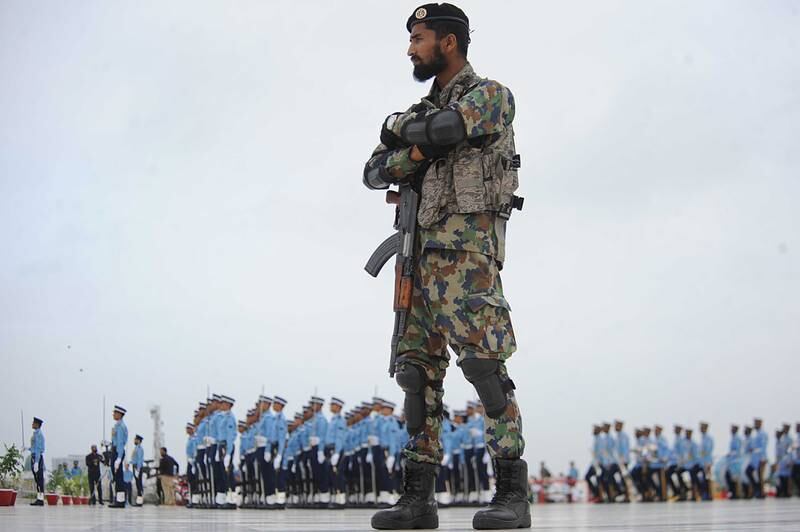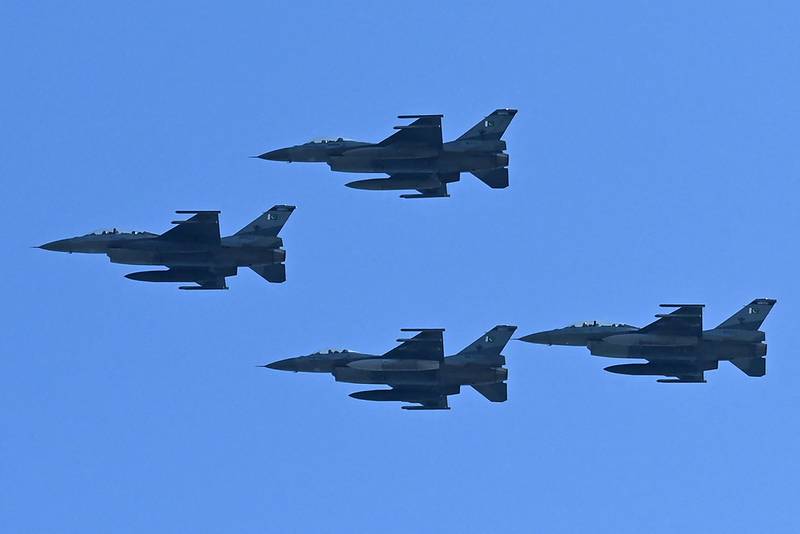FOOLS_NIGHTMARE
ELITE MEMBER

- Joined
- Sep 26, 2018
- Messages
- 18,063
- Reaction score
- 12
- Country
- Location
Security ties between Islamabad and Washington date back to 1954
Recent terrorist attacks in Pakistan – including several at mosques – have prompted Washington and Islamabad to strengthen collaboration in tackling the challenge of militancy, analysts have told The National.
US Secretary of Defence Lloyd Austin and Pakistan Army Chief Gen Asim Munir held a call on Tuesday night – an important development given the security situation in the South Asian nation.
It follows a string of statements from US officials saying they would stand by Islamabad following the attacks, which killed nearly 60 people in the provinces of Khyber Pakhtunkhwa and Balochistan.
While a US readout of the call said they simply “discussed areas of mutual interest as well as recent regional developments”, the discussion comes after Pakistan renewed a 15-year security co-operation agreement in August, first signed at the height of the US-led war in Afghanistan.

A Pakistani soldier stands guard as Pakistan Air Force soldiers attend a ceremony in Karachi. EPA
The agreement had languished since 2020 and its renewal comes as Pakistan is once again grappling with security threats from its neighbour as well as battling its own branch of the Taliban. Islamabad's relations with the new Taliban regime in Kabul are also at a low point, with Pakistan accusing Afghanistan of harbouring militants and forces from both sides periodically clashing along the border.
Security co-operation between the two allies dates back to 1954, with recent developments including the US renewing maintenance contracts for Pakistan's nearly 100-strong fleet of F-16 fighter jets.
But the alliance has often been strained, particularly during the US-led war on Al Qaeda in 2001 and the invasion of Afghanistan, when Washington said Pakistan was not doing enough to control militants within its borders.
Pakistan, meanwhile, accused the US of carelessness in launching drone strikes in the northern part of the country, which are thought to have killed between 400 and 1,000 civilians since 2004.
Pakistan security forces suffer highest casualty rate in eight years, report reveals
Rustam Shah Mohmand, a former Pakistani ambassador to Afghanistan and veteran observer of regional politics, told The National that the US tends to support Pakistan in areas where their interests align, yet makes decisions favouring its own national interests when divergences arise.
“While the US and India both oppose China’s influence in international politics, the US, as a superpower, continues to support Pakistan to maintain its backing in the region,” Mr Mohmand said.
“Pakistan is also committed to its alliance with China because of their shared border and the China-Pakistan Economic Corridor project, due to which China is extending assistance to Pakistan from time to time.”
Of an estimated $65 billion in Chinese investments in Pakistan, about $62 billion is linked to the Economic Corridor project, which features road, rail and port megaprojects. Bilateral US-Pakistan trade reached $12 billion in 2022.
Mr Mohmand acknowledged the revived threat posed by ISIS, which has ramped up attacks in both Pakistan and Afghanistan, taking advantage of the chaotic situation following the withdrawal of western forces
ISIS has lost ground and support in the Middle East, where it controlled about a third of Iraq and Syria between 2014 and 2018, but has increasingly sought other regions of instability to make gains, including the Sahel region of Africa.
ISIS threat
Some now fear Pakistan is emerging as the movement’s next major campaign ground.Sarfraz Khan, an analyst in international affairs, emphasised previous US support for Pakistan in the fight against terrorism. He cited the US coalition's support fund as an example of financial aid provided to Pakistan to combat militancy.
“However, Pakistan has failed to fully eradicate terrorists in the military operations,” he said.
Mr Khan said the US is not openly supporting the group, as it has not released Afghan Taliban government funds – the bulk of which remain frozen – “but the US may tacitly support the Afghan Taliban to counter Chinese influence in the region”.
For now, China has a number of investment projects in Afghanistan, but they are mostly long-term mining projects that could take years to bear fruit.
Mr Khan said that there was no differentiation between the Afghan Taliban and the Pakistani Taliban in terms of ideology.
Meanwhile, the Pakistani government has set November 1 as the deadline for undocumented Afghan migrants to exit the country. Pakistan has attributed several of this year’s terrorist attacks in the country to people originating from Afghanistan.
The country is facing an upswing in terrorist activities following the termination of a ceasefire agreement between the government and the Tehreek-e-Taliban Pakistan in the previous year.
Two days before Mr Austin’s visit, US State Department spokesman Matthew Miller said the US was committed to collaborating with Pakistan to devise strategies aimed at strengthening the country's efforts to combat violent extremism.
Last month, US Special Representative for Afghanistan Thomas West identified the TTP as the most significant threat to regional stability. When asked about Pakistan's role in achieving US objectives in Afghanistan, Mr West called Pakistan a strategic partner.

Pakistan and US look to revive security co-operation following mosque attacks
Security ties between Islamabad and Washington date back to 1954
